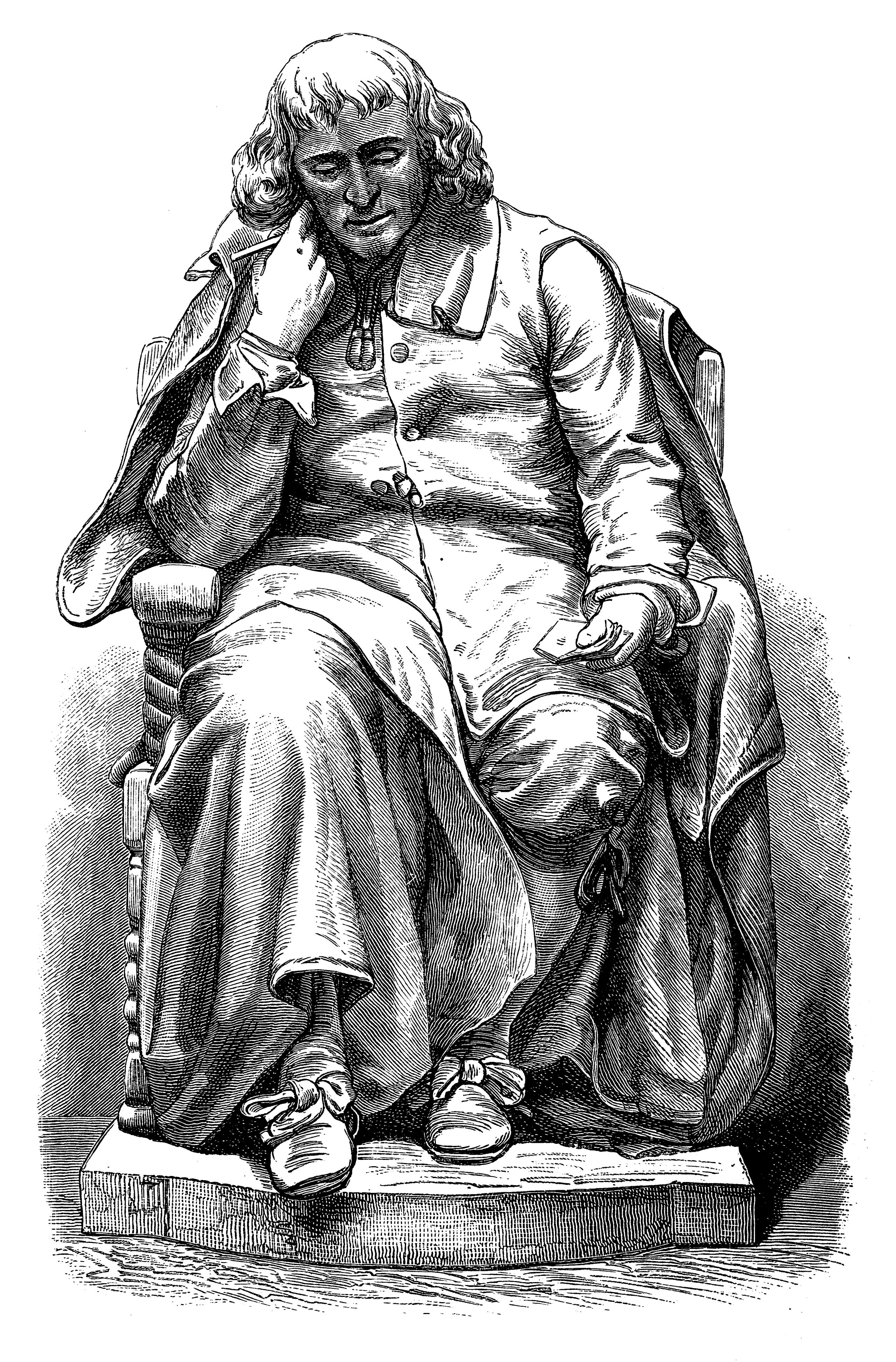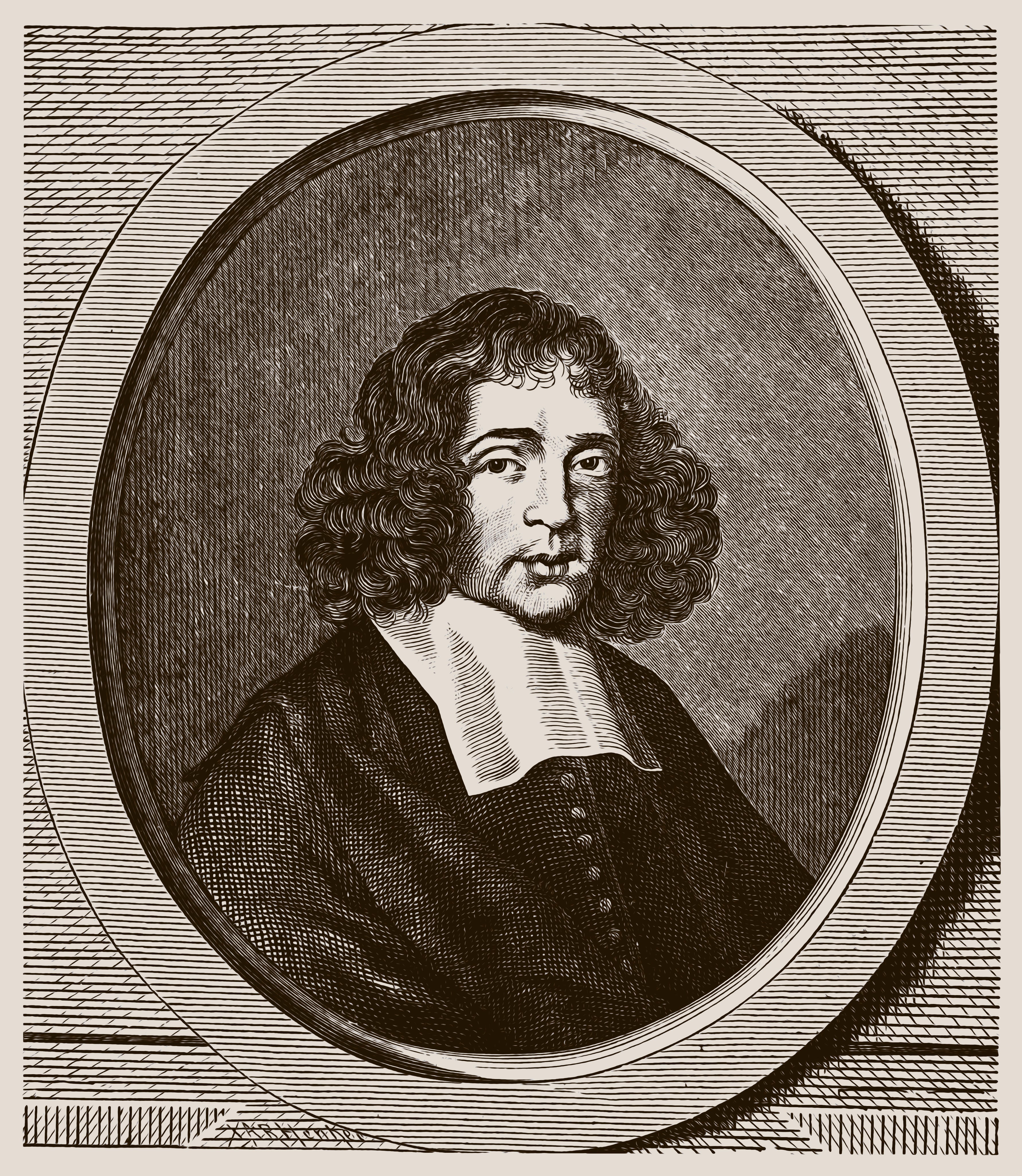Baruch Spinoza: One of the noblest of the great philosophers
His unorthodox beliefs about God and the universe caused him to be excommunicated from his Jewish community, but his work ‘The Ethics’ is now recognised as one of the great achievements of western philosophy

Baruch Spinoza (1632-77) has inspired much admiration and affection among philosophers and students of philosophy alike: Bertrand Russell said of him that he was “the noblest and most lovable of the great philosophers”.
This did not, however – as Russell went on to note – preclude Spinoza from being reviled in his time for his religious heterodoxy; indeed, as a young man he was excommunicated by his Jewish community for “horrendous heresies”. His troubles were caused by the unorthodox beliefs he held about God and the universe.
Spinoza was born in Amsterdam on 24 November 1632. His family were crypto-Jews: that is, they had been forced to adopt Christianity yet secretly maintained their Jewish faith. His father, a successful merchant, had emigrated to Amsterdam in order to avoid persecution, and occupied a position of some prominence in the Jewish community. The young Spinoza was educated at the local Jewish school and synagogue, where he learnt Hebrew and Jewish theology. Outside school hours, he was tutored in Latin, German and some of the other European languages. Spinoza’s father hoped that his son would choose to become a rabbi. However, by the time Spinoza turned 20, it was clear that this was not going to happen.
A path from Judaism
Under the influence of Frances van den Enden, a private tutor, Spinoza became increasingly dissatisfied with his rabbinical teachers, and began to identify with a number of unorthodox Christian groups, including, most significantly, the Collegiant sect. All this placed his relations with the wider Jewish community under strain. Things came to a head in 1653, when he refused to repent his opinion that there is nothing in the Bible to lead one to suppose that God is without a body. After a 30-day period of excommunication, he was cursed and thrown out of the synagogue for good. On being informed of his fate, he reportedly replied: “Very well. This does not force me to do anything that I would not have done of my own accord, had I not been afraid of a scandal.”
Given his treatment at the hands of religious authority, it is surely no coincidence that one of the two books he published in his lifetime was a call for religious tolerance and freedom. Published anonymously in 1670, the Tractatus Theologico-Politicus treated the Bible as a historical, culturally embedded document that inevitably reflected the limited understanding of its authors. Thus, for example, Spinoza denied that the biblical miracles were supernatural in origin, claiming rather that they were natural phenomena which had been misunderstood by the authors of the Bible because of a lack of knowledge. Spinoza did, however, believe that the Bible articulated a consistent moral vision – one based on a message of love – and that it contained nothing to suggest that it supported religious intolerance.
Spinoza’s Ethics
There is a certain irony in Spinoza’s troubles with religious authority, because it was his belief that God is literally everywhere. Or, to put it more accurately, Spinoza claimed that every existing thing is an aspect of just one substance, which is accurately described as God or nature. He set out this view in his most famous work, Ethics Demonstrated in Geometrical Order, known as The Ethics, which was published by his friends shortly after his death.
The Ethics is a difficult read. This is partly because of the way it is constructed. Spinoza sets it down in a geometrical style, with rigorous, deductive argumentation from premises to conclusions. Indeed, according to Bertrand Russell, it is not worthwhile for a modern student to learn the details of Spinoza’s technical argument; it is enough to concentrate on the less formal remarks that appear in the notes and appendices.
Despite its difficulties, however, The Ethics is undoubtedly one of the classic texts of western philosophy, so it is worth having a look at some of its arguments. In the first part of the work, Spinoza sets out his metaphysical ideas, which rest on the notion that there is just one substance, which, as indicated above, can be conceived of as either God or nature. Spinoza argued that this one substance has an infinite number of attributes; however, it is only possible for human beings to know two of them: physical extension and thought. Human beings themselves do not have a separate reality; they are simply aspects of the infinity of God.
The implications for ideas to do with sin and damnation are clear. If nothing can be other than it is, then what of moral responsibility?
Immediately, it is possible to see how Spinoza’s views came to be seen as heretical: God did not create nature, but rather God is equivalent to nature; and human beings are not straightforwardly the subjects of God, but rather aspects of God. Moreover, Spinoza’s view had implications for some of the standard themes of Christian theology. Perhaps most significantly, his idea that everything that occurs is simply a necessary manifestation of God or nature allows no room for free will, and consequently renders the notion of sin moot at best.
Spinoza was fully aware of this implication of his work. He claimed that people who believe “that they speak or keep silence or act in any way from the free decision of their mind, do but dream with their eyes open”, and that it is only because they are ignorant of the true causes of their actions that they are able to hold on to their dream:
Experience teaches us no less clearly than reason, that men believe themselves to be free, simply because they are conscious of their actions, and unconscious of the causes whereby those actions are determined; and, further, it is plain that the dictates of the mind are but another name for the appetites, and therefore vary according to the varying state of the body. (The Ethics)
Implications of ‘The Ethics’
The implications for ideas to do with sin and damnation are clear. If nothing can be other than it is, then what of moral responsibility? If the murderer has no freedom to choose not to murder, then it isn’t clear that he is morally responsible for his actions. And if everything in the universe is an aspect of God, then how can anything be bad or wrong? Interestingly, Spinoza’s response to this question anticipated Leibniz’s treatment of the problem of evil. He argued that when viewed from the point of view of God, there is no evil in sin, since from the perspective of the totality there is nothing negative in sin; human beings only see evil in the world because they are unable to see how the whole of reality fits together. In other words, like Leibniz, he thought that our understanding of evil was distorted by our ignorance of the divine.

However, it would not be right to assume that Spinoza’s system has no implications for the way that people should live. It was Spinoza’s belief that the task for human beings is to see reality as God sees it: that is, from the perspective of eternity, or, in his words, “under the aspect of eternity” (sub specie aeternitatis). To the extent that we are able to achieve this, we gain a kind of freedom; by recognising our place in the larger whole and seeing its goodness, we free ourselves from certain of our passions, particularly those rooted in hopes and fears that are predicated upon human limitations. Thus, for example, Spinoza claimed, “A free man thinks of nothing less than of death; and his wisdom is a meditation not of death, but of life.”
It should be clear why the arguments set out in The Ethics were unacceptable in terms of the orthodox Christianity of Spinoza’s day. They were clearly contrary to many of the central tenets of the Christian faith, including, for example, the idea of the fall of man, the possibility of salvation and everlasting life through an acceptance of Jesus Christ, and the notion of God as the father of man.
Spinoza was well aware that the publication of his great work would earn him the opprobrium of the religious establishment. In fact, this occurred even without its publication, as he wrote to Henry Oldenburg, secretary of the Royal Society:
[A] rumour gained currency that I had in the press a book concerning God, wherein I endeavoured to show that there is no God. Hence certain theologians, perhaps the authors of the rumour, took occasion to complain of me before the prince and magistrates … When I became aware of this through trustworthy men, who also assured me that the theologians were everywhere lying in wait for me, I determined to put off publishing till I saw how things were going …
In fact, the book was never published in his lifetime. In 1676, Spinoza began to experience health difficulties; he had been suffering from tuberculosis for a while, which had probably been made worse by his work as a lens grinder. He died on 21 February 1676 at the age of 43. His biographers report that he met his death as his philosophy commanded, calmly and without complaint.
Spinoza enjoys a somewhat paradoxical reputation among philosophers today. The Ethics is recognised as one of the great achievements of western philosophy, yet it is rarely studied in detail. This is perhaps because his metaphysics has largely been discounted; pantheism, the notion that God is in everything, has always been a marginal belief, and when it is combined with a smidgen of panpsychism – roughly speaking, the idea that the mind is everywhere – it becomes even more marginal.

However, Spinoza’s ethical ideas retain their pertinence. Particularly, there is something to be said for considering the travails of humanity from the perspective of the whole of reality – not in order to lessen our moral sensibility, but rather to help us understand that we are but a tiny part of the universe. Bertrand Russell, in his great history of western philosophy, suggested that in a painful world such reflections “are a help towards sanity and an antidote to the paralysis of utter despair”. If he is right, then Spinoza’s philosophy has something to teach us even today.
Major works
Baruch Spinoza only published one major work in his lifetime (Theological-Political Treatise). His outstanding work, Ethics Demonstrated in Geometrical Order (The Ethics), although completed in 1675, was not published until shortly after his death.
Theological-Political Treatise (1670)
This work treats the Bible as a historical, culturally embedded document, which inevitably reflects the limited understanding of its authors. The book was published anonymously, as Spinoza was concerned – not without reason – as to the sort of reception it could expect from organised religion.
The Ethics (1677)
Spinoza’s major work – indeed one of the classics of modern philosophy – in which he sets out his metaphysical ideas, which rest on the notion that reality comprises just one substance, which can be conceived of as either God or nature. The Ethics was not published during Spinoza’s lifetime, partly at least because he feared the reaction its publication would provoke.






Join our commenting forum
Join thought-provoking conversations, follow other Independent readers and see their replies
Comments